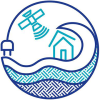Key recommendations
Actions that you can take to support learners, their performance, and Pacific education systems.
The Niue Ministry of Education (MoE) is to be congratulated on the improvements in literacy (reading and writing) and numeracy performance observed in PILNA 2021 and encouraged to continue the interventions and supports that have been implemented in the years following PILNA 2018 that have contributed to those improvements.
The MoE is strongly encouraged to capture and share the specific changes implemented to address challenges observed in PILNA 2018 and PILNA 2015 so that other ministries can benefit from their experiences.
The MoE is encouraged to continue strategies already in place to maintain and continue to improve the reading standards of the students.
The MoE is encouraged to continue to reduce the gap between girls’ and boys’ performance in numeracy, reading, and writing. PILNA has consistently found that girls outperform boys in all the domains, although this gender disparity has improved in the 2021 performance for Niue.
The MoE is encouraged to provide supplementary training for teachers in the development and use of classroom-based informal and formative assessment. Teachers are to identify specific needs of students, tailor instruction to meet these needs and monitor the effectiveness of the instruction to optimise student learning.
The MoE is encouraged to undertake further exploration of the PILNA 2021 cognitive and contextual data sets, along with other relevant data sets, to better understand the challenges facing students and teachers in Niue. The findings can be used to target support and intervention in the Niue education system, with the goal of strengthening numeracy, reading, and writing instruction leading to improved student learning outcomes.
Teachers are encouraged to support year four and year six students in the numeracy concepts of place value, fractions, measurements, and problem-solving. The PILNA data highlighted the areas where students struggle in and intervention strategies must be in place to continue to support these students.








